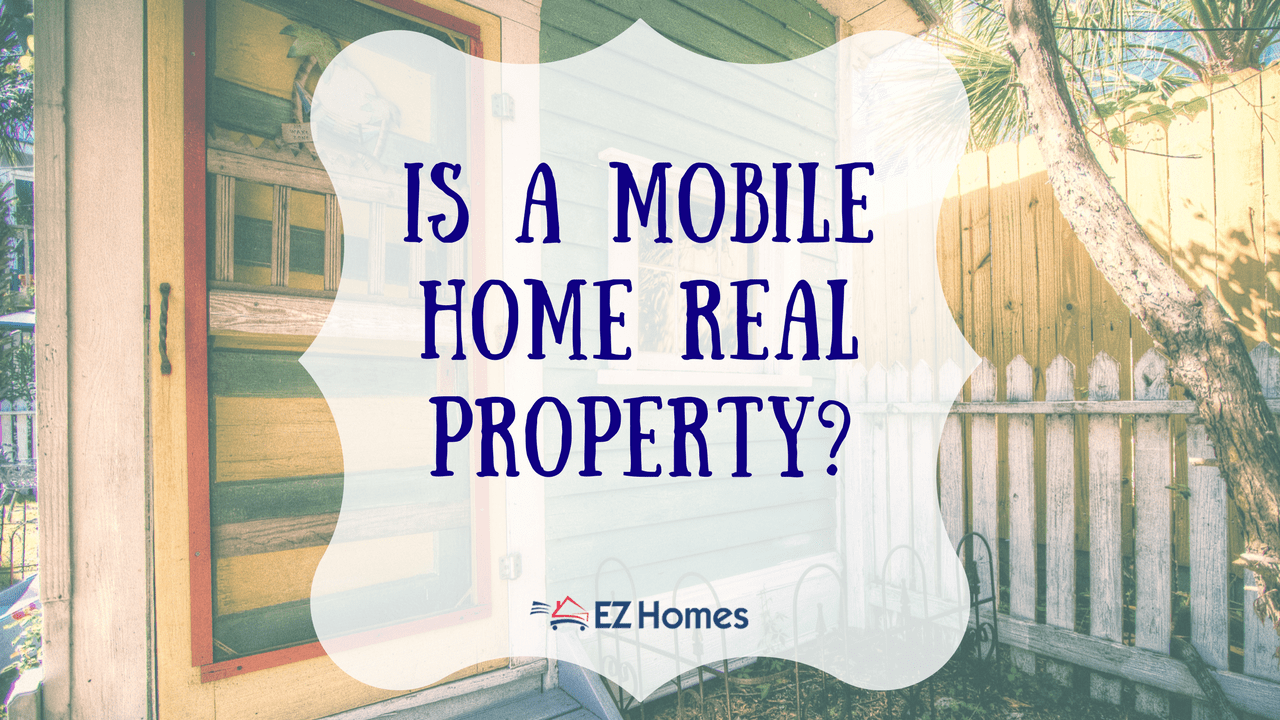
“Is a mobile home real property?” Before purchasing a mobile home, you should know the answer to this question. It’s a tricky one with an even trickier answer. In this article, we’ll walk you through the answer and help you understand how it affects your ownership.

The legal system divides all property into two categories: real and personal property. Mobile homes can be considered real or personal property depending on their location and the relationship they have with the land on which they stand. First, let’s try to understand what real property and personal property mean. Real property is considered immovable, meaning it is permanently attached or affixed to land. Personal property is anything not permanently connected to land.
In most states, mobile homes are classified as personal property. The law originated from the trailer home, which is the origin of manufactured and mobile homes. You see, when a home has the capability of being towed on the highway, then it is subjected to the same laws that vehicles are. This includes licensing and titling requirements.
Of course, mobile homes have changed substantially since trailer homes first became popular. Most of the manufactured homes built today are only moved once, from the manufacturer to the lot. It’s important to note that most states do allow mobile home owners to convert their mobile homes from personal property to real property under certain conditions. These conditions, however, vary widely from state to state.
The US Department of Housing (HUD) codes regulate mobile home construction through controlled environments. Mobile homes have a framework for mobility and placards affixed to the base of the houses. The placard represents the serial number and the HUD certification. Any mobile home built before June 1976 is not compliant with the HUD code standards. These households might not be eligible for property conversion because they don’t meet the minimum building standard codes required for real estate.
Under the Uniform Manufactured Housing Act (or UMHA) there is a specific conversion process. For a mobile home to be reclassified as real property, the owner has to file a certification of location at the county recorder’s office and pay all the applicable fees. The certification demonstrates that the mobile home is permanently placed on land and is therefore eligible as real property. To be certified, remove the wheels and axles and establish electric utilities for the mobile home. You’ll also need to have the legal rights to the land where the mobile home sits.

The costs to convert a mobile to real property vary from state to state. If you want to convert your home to real property, first you have to consider the cost of the land. Then you have to consider the transportation of the mobile home. The relocation requires that you have a permit for transporting an oversized item on the highway.
Once you’ve purchased the land, you will need to obtain a permit to complete any work on your home to ensure that it meets all the necessary codes. The permit work order you get might include incorporating utilities, retrofitting, removing wheels and axels and doing any upgrades or repairs required.
You should also add other costs, such as building a fence or a porch, into your budget. Before making these improvements, make sure that the permit allows you to include those upgrades. In addition to that, you have to pay the county recording fees for the annual property taxes for real estate, which the county assessor will help you estimate.
Whether your mobile home is classified as real or personal property, you can get financing. For real property, yo u are eligible for a traditional home loan. Traditional loans carry benefits like special tax deductions, longer terms as well as low-interest rates.

With personal property though, you’re limited to chattel loans, which have higher interest rates and shorter terms. They are also challenging to get, and most dealers usually offer their financing to entice consumers. Apart from being confusing, chattel loans cannot compete with traditional loans because they don’t carry the same benefits. If you can get a real property loan, then you should take advantage of that. Doing so will help you save money on taxes and interest rates.
The answer is yes and no. Real property includes mobile homes affixed to land owned by the mobile homeowner. If not, then the dwelling is classified as personal property. If you can reclassify your mobile home to real property, you might find it beneficial. You could be eligible for better financing and certain tax deductions.
Dan Paton has been working full-time in this field for over a decade. Both him and his partner, Dan Leighton, formed EZ Homes back in 2006 and have seen explosive growth ever since. Dan works heavily in the administrative role within the organization. He is a jack of all trades type of guy. Dan and his wife have 4 children.